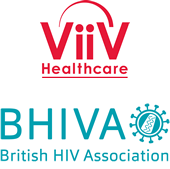The BHIVA/ViiV Implementation Science Scholarships are supported by ViiV Healthcare and administered by BHIVA. Scholarships are available up to a maximum of £25,000 and five scholarships up to a maximum of £10,000 per award. UK-based BHIVA members from any discipline will be supported to deliver an implementation science project and to be trained in implementation science methodology. Applicants must be BHIVA members in order to apply.
Applications are currently closed.
BHIVA Research Awards
BHIVA Research Awards provide funding for research projects that will impact on the improvement of clinical care, management, health and wellbeing of people living with HIV and on the prevention of HIV transmission. Applicants must be from UK-based institutions and awards will be paid in UK currency (GBP) to UK bank accounts. Projects should be wholly or primarily focussed on UK populations. Applications with additional impact in other country or population settings and/or which support the development of research skills for the UK-based applicant may also be considered.
If your project fits these criteria, please click here to apply for these awards.
2022 (round three) winners
Name and Institution |
Project title |
Dr Mimie Chirwa |
'HIV testing within faith communities in Luton' |
Dr David Lawrence |
'Implementing long-acting injectable antiretroviral therapy for people living with HIV who have chronic viraemia' |
Dr Shema Tariq |
'The PRIME clinic: implementing holistic support for women living with HIV transitioning through the menopause' |
2022 (round two) winners
Name and Institution |
Project title |
Dr Flavien Coukan |
‘Modifiable factors to HIV PrEP access: a qualitative study to investigate codesign strategies to develop new PrEP delivery and accessibility recommendations in underserved populations in England’ |
2022 (round one) winner
Name and Institution |
Project title |
Dr Daniella Chilton |
Pilot – Patient activation measure to support personalised care and pathway stratification in HIV services |
2020 winners
Name and Institution |
Project title |
Dr Sonia Raffe |
10-things I wish you knew: Co-production and implementation of a teaching tool to challenge HIV-related stigma in the healthcare setting. |
2019 winners
Name and Institution |
Project title |
Dr Sara Madge |
What works best? Comparing alternative approaches to implementing a specialist dietetic service within an established HIV outpatient clinic. Published: P091; 'Managing metabolic issues: evaluation of a short term comparative implementation project introducing a dietician to an HIV service' |
Dr Ramona Malek |
Lifestyle intervention in HIV clinics. |
Dr Kiersten Simmons |
Implementation and evaluation of a case finding pathway for frailty in older people living with HIV. Published: P154; 'Improving health and wellbeing across HIV/GUM departments in the UK' |




